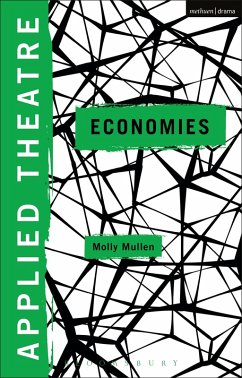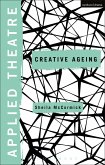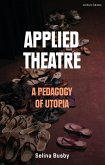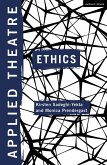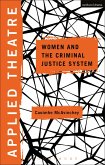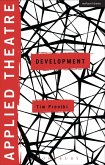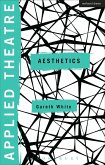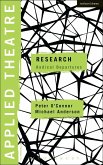The APPLIED THEATRE series is a major innovation in applied theatre scholarship: each book presents new ways of seeing and critically reflecting on this dynamic and vibrant field. Volumes offer a theoretical framework and introductory survey of the field addressed, combined with a range of case studies illustrating and critically engaging with practice.
Series Editors: Sheila Preston and Michael Balfour
Applied Theatre: Economies addresses a notoriously problematic area: applied theatre's relationship
to the economy and the ways in which socially committed theatre makers fund, finance or otherwise
resource their work.
Part One addresses longstanding concerns in the field about the effects of economic conditions and funding relationships on applied theatre practice. It considers how applied theatre's relationship with local and global economies can be understood from different theoretical and philosophical perspectives. It also examines a range of ways in which applied theatre can be resourced, identifying key issues and seeking possibilities for theatre makers to sustain their work without undermining their social and artistic values.
The international case studies in Part Two give vivid insights into the day-to-day challenges of resourcing applied theatre work in Chile, Canada, the UK, New Zealand, Hong Kong and the US. The authors examine critical issues or points of tension that have arisen in a particular funding relationship or from specific economic activities. Each study also illuminates ways in which applied theatre makers can bring artistic and social justice principles to bear on financial and organizational processes.
Series Editors: Sheila Preston and Michael Balfour
Applied Theatre: Economies addresses a notoriously problematic area: applied theatre's relationship
to the economy and the ways in which socially committed theatre makers fund, finance or otherwise
resource their work.
Part One addresses longstanding concerns in the field about the effects of economic conditions and funding relationships on applied theatre practice. It considers how applied theatre's relationship with local and global economies can be understood from different theoretical and philosophical perspectives. It also examines a range of ways in which applied theatre can be resourced, identifying key issues and seeking possibilities for theatre makers to sustain their work without undermining their social and artistic values.
The international case studies in Part Two give vivid insights into the day-to-day challenges of resourcing applied theatre work in Chile, Canada, the UK, New Zealand, Hong Kong and the US. The authors examine critical issues or points of tension that have arisen in a particular funding relationship or from specific economic activities. Each study also illuminates ways in which applied theatre makers can bring artistic and social justice principles to bear on financial and organizational processes.

